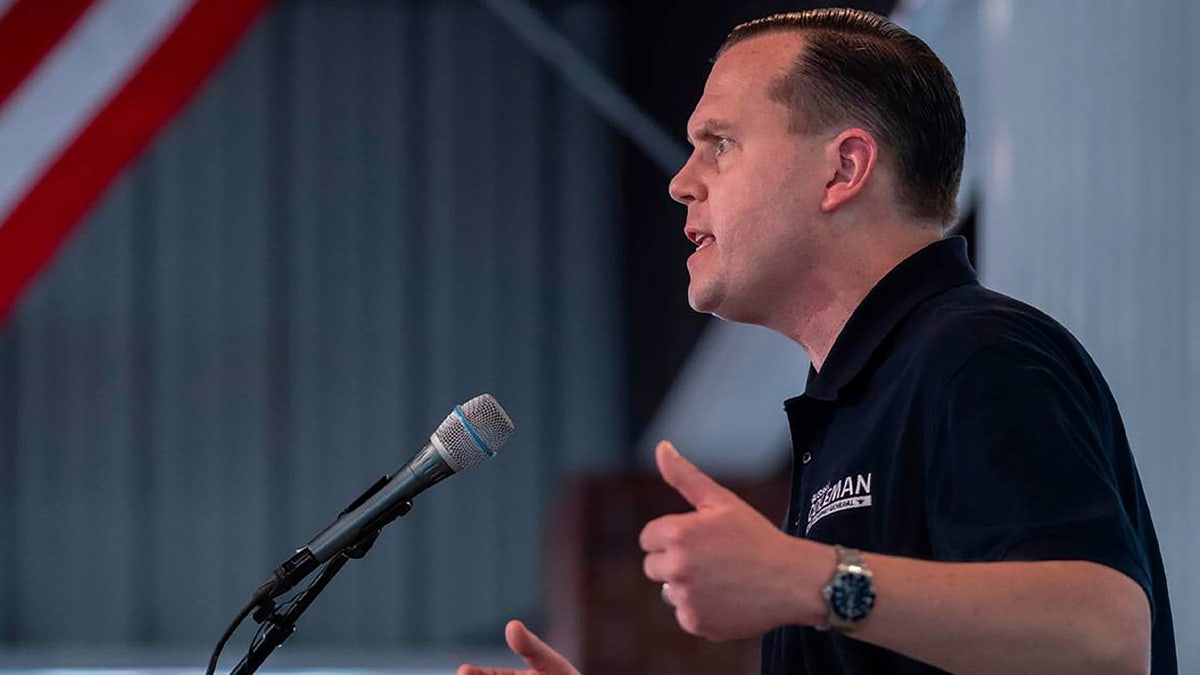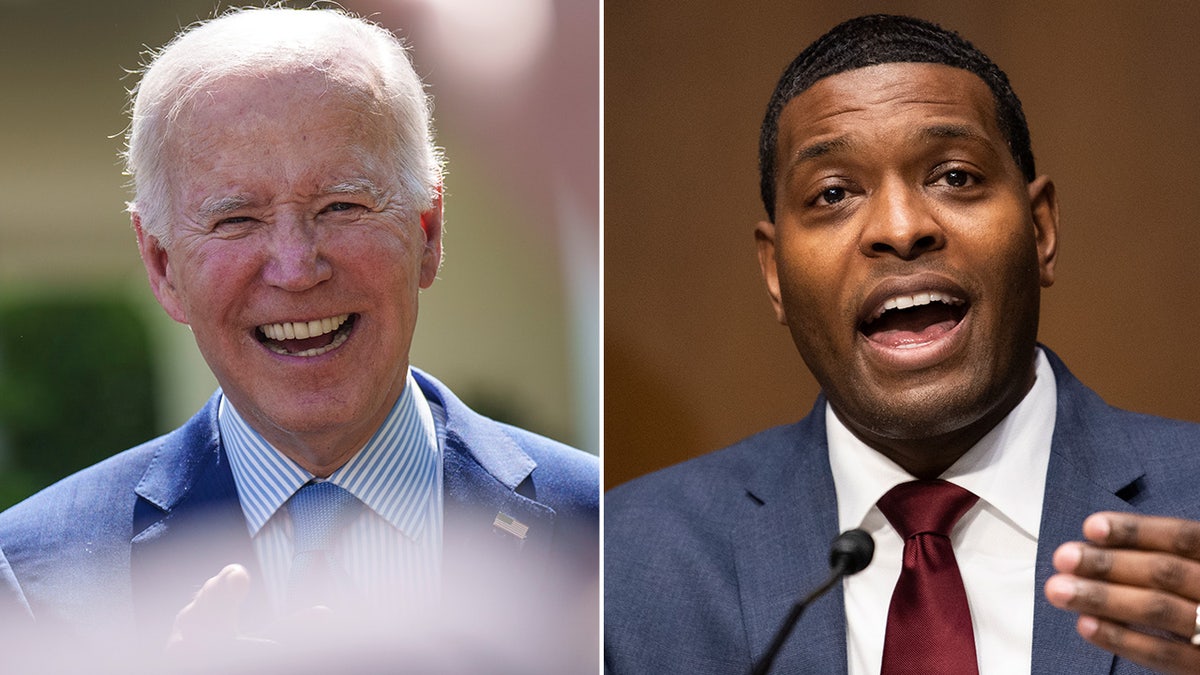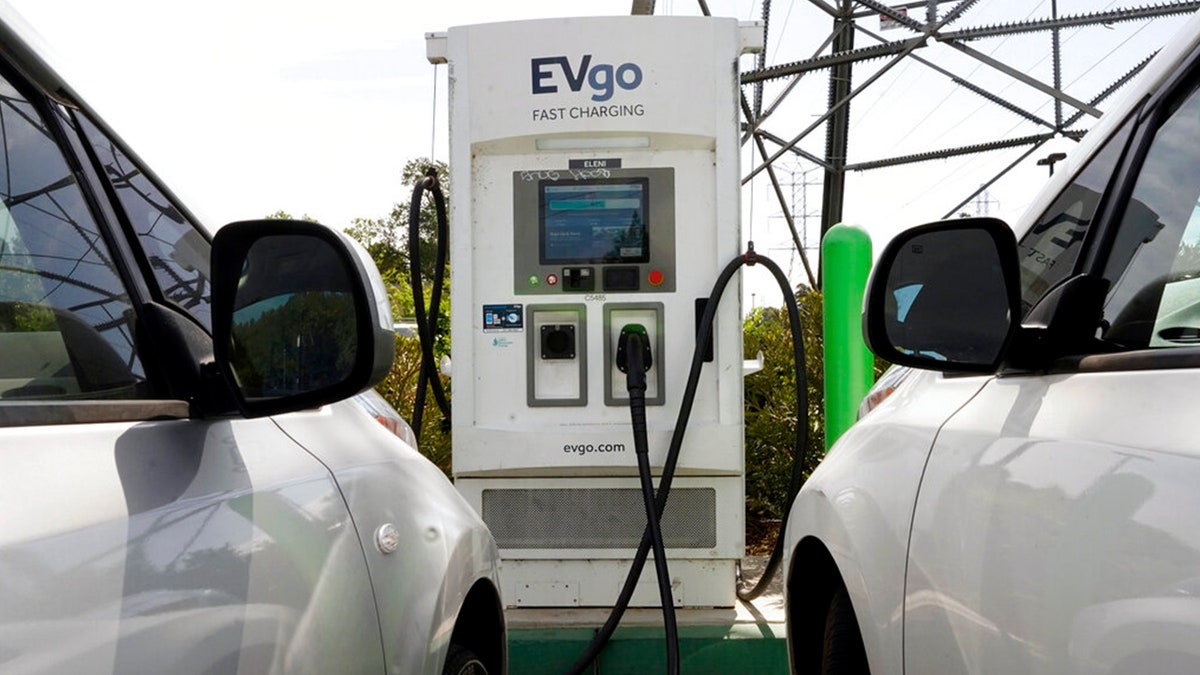Consumers are not ‘buying in’ to Democrats' electric vehicle agenda: Tom Maoli
Founder and CEO of Celebrity Motor Cars Tom Maoli joined ‘Cavuto: Live’ to weigh in on the Biden administration’s toughest-ever emissions rules.
FIRST ON FOX: A coalition of 25 state attorneys general filed a legal challenge Thursday against the Biden administration over recent environmental regulations targeting gas-powered car emissions and pushing electric vehicles (EVs).
Led by Kentucky Attorney General Russell Coleman and West Virginia Attorney General Patrick Morrisey, the coalition filed a challenge against the Environmental Protection Agency (EPA) in the U.S. Court of Appeals for the D.C. Circuit, asking the court to declare the new rules unlawful. According to the filing, the EPA regulations impose "unworkable emissions standards" on passenger cars and medium-duty vehicles.
"Conservative attorneys general are slamming the brakes on President Biden’s radical green agenda that is using the weight of the federal government to force expensive EVs on families, workers and farmers," Coleman said in a statement to Fox News Digital.
"Even if Americans wanted to buy an electric car, we can’t afford them amid historic inflation," he continued. "We’re taking President Biden’s EPA to court to block this latest big-government mandate and protect the free market."
FEWER AMERICANS WANT TO BUY AN EV — EVEN AS BIDEN PUSHES FOR STRONGEST-EVER CLIMATE CHANGE RULES

Kentucky Attorney General Russell Coleman speaks during an event in Fancy Farm, Kentucky, on Aug. 5, 2023. (Ryan C. Hermens/Lexington Herald-Leader/Tribune News Service via Getty Images)
In a joint announcement with the White House last month, the EPA issued the regulations, which are the most aggressive multipollutant emission standards ever finalized. Those standards were officially published Thursday, opening the door to legal challenges and congressional resolutions.
While the regulations target gas-powered vehicles, they are explicitly designed to push a wider, nationwide adoption of EVs and, to a lesser extent, hybrid cars. President Biden said after the rules were finalized, they would help ensure the U.S. meets his goal of EVs accounting for 50% of all new car sales in 2030.
MAINE REJECTS SWEEPING ELECTRIC VEHICLE MANDATE IN BLOW TO GOVERNOR'S CLIMATE AGENDA
Under the standards, automakers will be forced to rapidly curb the emissions of greenhouse gases, hydrocarbons, nitrogen oxides and particulate matter from new passenger cars, light trucks, and larger pickups and vans beginning in two years with model year 2027 vehicles. The EPA said the rules will help "tackle the climate crisis" by reducing the transportation sector's carbon dioxide emissions.

President Biden, left, and Environmental Protection Agency administrator Michael Regan. (Getty Images)
When the tailpipe emissions rules kick in, automakers will be compelled to increase production and sales of EVs, plug-in hybrids, traditional hybrids and fuel cell vehicles. Under one so-called "low cost" model, the EPA said automakers would be forced to ensure 56% of light-duty car sales are battery electric and another 13% are hybrid by 2032.
"Kentucky is an agriculture state, and EVs aren’t tough enough to keep up with our farmers," said Kentucky Agriculture Commissioner Jonathan Shell. "We put a lot of miles on the Kentucky Department of Agriculture’s vehicles to serve rural communities, and we can’t stop on the side of the road to plug in. The Biden administration has it out for rural America, and I’m proud Kentucky is leading the fight to stop them."
17 RETIRED MILITARY OFFICIALS RAISE ALARM ON BIDEN'S ELECTRIC VEHICLE PUSH
Joining Kentucky and West Virginia in the legal challenge filed Thursday are Alabama, Alaska, Arkansas, Florida, Georgia, Idaho, Indiana, Iowa, Kansas, Louisiana, Mississippi, Missouri, Montana, Nebraska, New Hampshire, North Dakota, Ohio, Oklahoma, South Carolina, South Dakota, Utah, Virginia and Wyoming.

Even factoring in generous federal and state subsidies, the average cost of an EV is about $52,500, according to the Alliance for Automotive Innovation, while the average gas subcompact car costs $24,000. (AP Photo/Rich Pedroncelli, File)
The EPA's regulations have been heavily criticized by state officials, Republican and Democratic lawmakers, agriculture industry groups like the National Corn Growers Association and energy associations, such as the American Fuel & Petrochemical Manufacturers and the American Petroleum Institute.
In 2023, 9.5% of new, light-duty vehicle sales were EVs, up from 7% in 2022 and 4.3% in 2021, according to data from the Alliance for Automotive Innovation, an industry group that represents major automakers. At the same time, EVs remain more expensive than traditional, gas-powered cars.
CLICK HERE TO GET THE FOX NEWS APP
Additionaly, the share of Americans who said they are considering an EV purchase has declined from 55% to 44% year-over-year, according to a Gallup poll conducted in March.
Calls placed to the EPA seeking comment were not immediately returned.













































